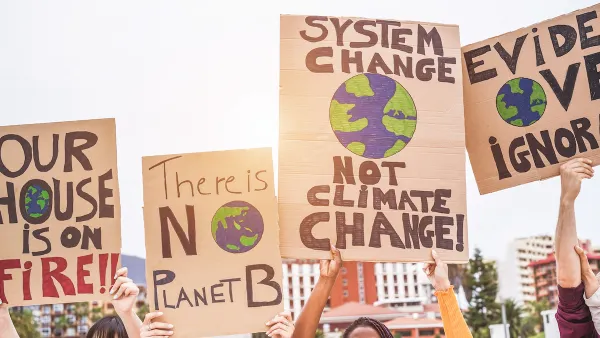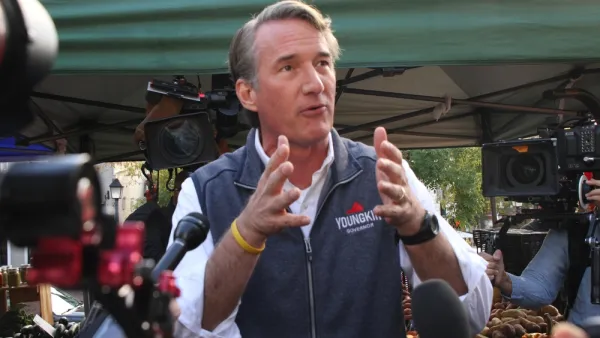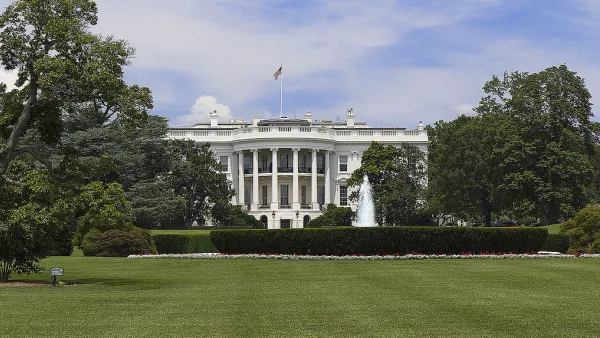The good news is the climate movement is winning the argument that climate change is happening; the bad news is the deniers have a new strategy.

Over the past few years, climate deniers have changed tactics. “Where once climate deniers would outright reject climate change as a hoax or scam, or claim that humans were not responsible for it, many are now shifting to a different approach, one which attempts to undermine climate science, cast doubt on climate solutions and even claim global warming will be beneficial at best, harmless at worst,” reports Rachel Ramirez of CNN.
The nonprofit Center for Countering Digital Hate (CCDH) calls this trend “new denial” and says the shift in narrative could be helping YouTube creators get around the platform’s existing ban on monetizing traditional climate denial. “New denial” content has doubled since 2018 and now makes up 70 percent of all climate denial claims posted on YouTube, according to the report.
In some ways the report is a success, Imran Ahmed, chief executive officer and founder of CCDH, told CNN. “The climate movement has won the argument that climate change is real, and that it is hurting our planet’s ecosystems.” But he said it’s also a warning, as the new narrative that the solutions don’t work “could hold enormous influence over public opinion on climate action for decades to come.”
Considering YouTube’s global reach and popularity with young people, this could have major implications as planners, local officials, and advocates in communities across the country seek to advance climate action.
CCDH and other organizations are calling on YouTube and Google to boost their policies to prevent bad actors from monetizing this “new denial” content like it does the “old denial” content.
FULL STORY: What is ‘new denial?’ An alarming wave of climate misinformation is spreading on YouTube, watchdog says

National Parks Layoffs Will Cause Communities to Lose Billions
Thousands of essential park workers were laid off this week, just before the busy spring break season.

Retro-silient?: America’s First “Eco-burb,” The Woodlands Turns 50
A master-planned community north of Houston offers lessons on green infrastructure and resilient design, but falls short of its founder’s lofty affordability and walkability goals.

Delivering for America Plan Will Downgrade Mail Service in at Least 49.5 Percent of Zip Codes
Republican and Democrat lawmakers criticize the plan for its disproportionate negative impact on rural communities.

Test News Post 1
This is a summary

Test News Headline 46
Test for the image on the front page.

Balancing Bombs and Butterflies: How the National Guard Protects a Rare Species
The National Guard at Fort Indiantown Gap uses GIS technology and land management strategies to balance military training with conservation efforts, ensuring the survival of the rare eastern regal fritillary butterfly.
Urban Design for Planners 1: Software Tools
This six-course series explores essential urban design concepts using open source software and equips planners with the tools they need to participate fully in the urban design process.
Planning for Universal Design
Learn the tools for implementing Universal Design in planning regulations.
EMC Planning Group, Inc.
Planetizen
Planetizen
Mpact (formerly Rail~Volution)
Great Falls Development Authority, Inc.
HUDs Office of Policy Development and Research
NYU Wagner Graduate School of Public Service





























